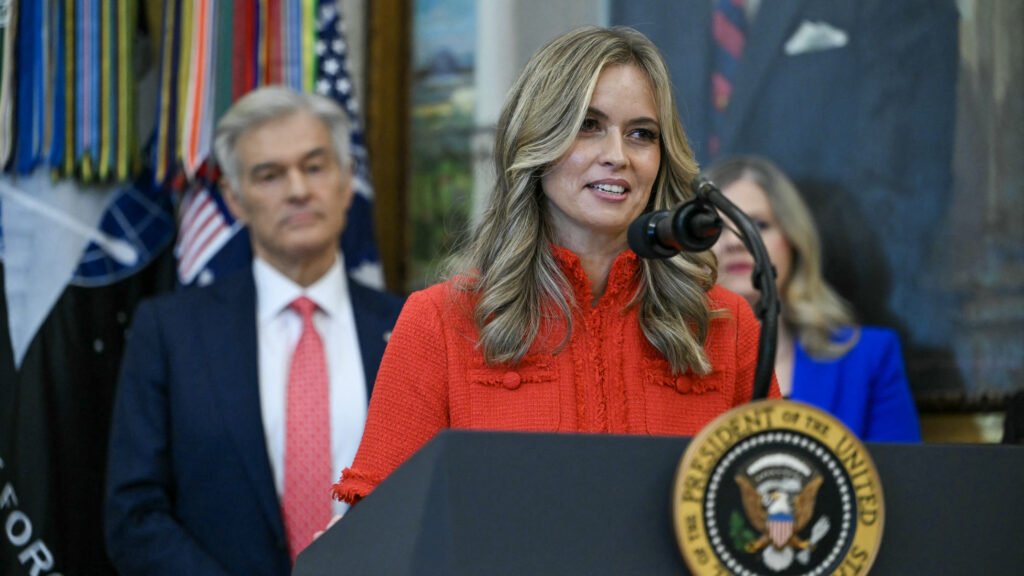The Trump administration has recently made a significant move to lower drug prices by striking a deal with EMD Serono, a pharmaceutical company specializing in fertility medications. This deal is part of a larger effort by the administration to increase access and affordability for fertility services in the United States.
The agreement with EMD Serono includes several key components. The drugmaker has committed to lowering the prices of its IVF medications, such as Gonal-f, Ovidrel, and Cetrotide. Additionally, new benefit rules will encourage employers to offer coverage for in vitro fertilization outside of traditional health insurance plans. Furthermore, the Food and Drug Administration will prioritize the review of a fertility drug that is currently unavailable in the U.S.
EMD Serono, the U.S. subsidiary of German company Merck, has agreed to offer its IVF therapies directly to consumers and participate in the TrumpRx purchasing platform by 2026. The company has pledged to provide its medications at an 84% discount compared to list prices, which is expected to result in a significant reduction in the cost of IVF treatments. Company officials believe that this deal will strengthen their IVF business in the U.S.
One of the unique aspects of this agreement is that EMD Serono will not face national security tariffs if they invest in U.S. manufacturing. While no new commitments were made at the meeting, company representatives indicated that there would be future announcements regarding manufacturing efforts in the U.S.
The Trump administration has been actively working to lower drug costs through various initiatives, including pressuring pharmaceutical companies to negotiate lower prices. While details of the agreements between the administration and drug companies remain confidential, experts are hopeful that these deals will have a positive impact on drug affordability for Americans.
In vitro fertilization (IVF) has become a standard procedure for addressing infertility, with one in six individuals worldwide experiencing fertility issues. However, the high cost of IVF treatments has made them inaccessible to many families. A single cycle of IVF can cost between $15,000 and $30,000, with medications accounting for a significant portion of the expenses.
Employers are increasingly offering coverage for fertility treatments, with some states mandating private insurance coverage for IVF. However, self-insured plans and most state Medicaid programs do not cover these services. The Trump administration’s goal is to incentivize employers to add IVF coverage by lowering drug prices and decoupling fertility treatments from traditional health insurance.
Overall, the deal with EMD Serono represents a significant step towards making IVF more affordable and accessible to individuals struggling with infertility in the U.S. The administration hopes that this agreement will pave the way for more deals with pharmaceutical companies and further reduce the cost of fertility care for Americans. The recent changes in coverage rules from the Departments of Labor, Treasury, and HHS have sparked debate among officials and critics alike. The aim of these changes is to potentially reduce out-of-pocket expenses for employees, but some are skeptical about the effectiveness of the administration’s approach.
Critics, including Sen. Elizabeth Warren, have expressed concerns that the new policies may not adequately address the challenges faced by families. Warren accused President Trump of misleading the public by promising free access to IVF for all, only to now rely on companies to voluntarily provide coverage without any federal investment or enforcement.
In a bid to encourage companies to offer IVF coverage, EMD Serono has taken the lead by lowering prices for their drug Pergoveris. This drug, which is similar to Gonal-f, helps stimulate the development of egg-producing structures in the ovaries. By offering a more cost-effective and patient-friendly option, EMD Serono hopes to improve access to IVF treatment.
As a reward for their efforts, EMD Serono will receive a priority voucher from the FDA to expedite the review of Pergoveris. This voucher program, initiated by the FDA, aims to fast-track drug reviews for companies that align with the administration’s health priorities. The goal is to provide companies with a quicker response on their drug submissions, with EMD Serono being one of the first recipients.
Despite these changes, there is no mandatory requirement for employers to offer IVF insurance going forward. However, CMS Administrator Mehmet Oz remains optimistic, predicting that the new policies will lead to an increase in the number of babies born, dubbing them “Trump babies.”
Overall, the impact of these coverage rule changes remains to be seen. While they may provide some relief for employees seeking IVF treatment, there are concerns about the reliance on voluntary employer participation. As the debate continues, it is clear that access to affordable IVF treatment remains a pressing issue for many families.


